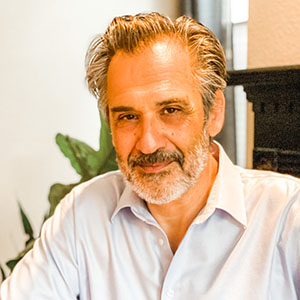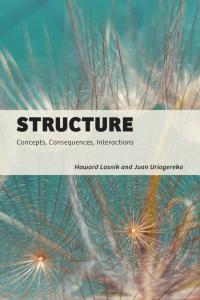Juan Uriagereka

School of Languages, Literatures, and Cultures
Professor, Spanish and Portuguese
Professor, Linguistics
Member, Maryland Language Science Center
4225 Jiménez Hall
Get Directions
Research Expertise
Syntax
Since joining the university in 1989, Juan Uriagereka has published a dozen books and many articles/chapters. Uriagereka has (co-)directed 19 dissertations, is co-directing three others (within and outside UMD), and has participated in the graduate committees of some seventy students. As Associate Provost for Faculty, he spearheaded family-friendly policies, regularized the status of professional-track faculty, organized leadership forums, and updated APT policies. His current books include the monograph Structure, with Howard Lasnik (MIT Press, 2022), a multidisciplinary project to formulate language structures as linear operators, and a book in progress on code-switching, co-authored with Jeff MacSwan for Cambridge University Press. His outreach activities include writing for the Washington-based Musica Aperta and co-founding Imagining Reality Insights & Solutions, to help with literacy and other educational issues.
Publications
Structure. Concepts, Consequences, Interactions
Natural phenomena, including human language, are not just series of events but are organized quasi-periodically; sentences have structure, and that structure matters.
Author/Lead: Juan Uriagereka
Howard Lasnik and Juan Uriagereka “were there” when generative grammar was being developed into the Minimalist Program. In this presentation of the universal aspects of human language as a cognitive phenomenon, they rationally reconstruct syntactic structure. In the process, they touch upon structure dependency and its consequences for learnability, nuanced arguments (including global ones) for structure presupposed in standard linguistic analyses, and a formalism to capture long-range correlations. For practitioners, the authors assess whether “all we need is Merge,” while for outsiders, they summarize what needs to be covered when attempting to have structure “emerge.”
Reconstructing the essential history of what is at stake when arguing for sentence scaffolding, the authors cover a range of larger issues, from the traditional computational notion of structure (the strong generative capacity of a system) and how far down into words it reaches, to whether its variants, as evident across the world's languages, can arise from non-generative systems. While their perspective stems from Noam Chomsky's work, it does so critically, separating rhetoric from results. They consider what they do to be empirical, with the formalism being only a tool to guide their research (of course, they want sharp tools that can be falsified and have predictive power). Reaching out to sceptics, they invite potential collaborations that could arise from mutual examination of one another's work, as they attempt to establish a dialogue beyond generative grammar.
Read More about Structure. Concepts, Consequences, Interactions

